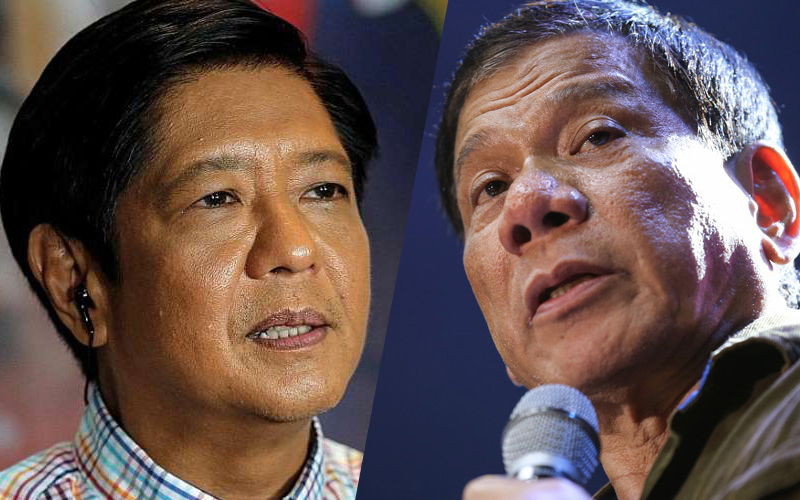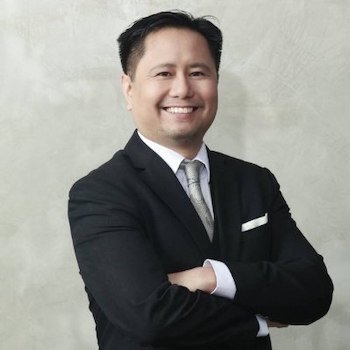
Will the Philippines Consider Marcos Jr. as Vice President?
Philippine Vice Presidential candidate Ferdinand “Bongbong” Marcos Jr. has asked the Commission on Elections (Comelec), the country’s poll body, to suspend the unofficial tally of election returns on allegations of vote padding. On Monday evening, he alleged that hash codes of packet data were altered through an insertion of a new computer script into the poll body’s transparency server – about the time his opponent, Leni Robredo, began overtaking him in an unofficial quick count.
With the unofficial tally on its third day and with less than 5 percent of all remaining voting precincts accounted for, Robredo is leading with some 210,000 votes, a difference of 0.4 percent in terms of total expected votes. Since Tuesday morning, Robredo, a progressive human rights lawyer running on President Aquino’s platform of Daang Matuwid (straight path), has not relinquished her lead. The son of late dictator Ferdinand Marcos, Bongbong is now accusing the administration of cheating the vice presidential race to favor Robredo.
These are serious allegations. Comelec commissioners flatly rejected Bongbong’s call to suspend the unofficial canvass. After all, aside from a “letter,” Bongbong’s camp has filed no formal petition or protest with the poll body or before any court. Nor has Marcos been able to substantiate allegations of electoral fraud aside from fielding statistical claims.
In fact, in the days leading up to the election, major survey firms such as Pulse Asia and the Social Weather Station placed Robredo and Marcos at a statistical tie, and many expected that the vice presidential race would be a tightly contested one. The latest snapshot of voter preference, therefore, should come as no surprise to anyone, nor would it lie outside the frontiers of reasonable expectations.
Built-in measures make electronic tampering unlikely. To alter data packets, one would have to hack into not just the central server of the Comelec but all three backup servers, and the hacker must be able to overcome tiers of data encryption. There has been no evidence leading to either finding. Marcos had pointed to a “suspicious trend” beginning late Monday evening that had Robredo leading by a few hundred votes, eventually swelling into several thousands by Tuesday, however, statisticians remain divided on the matter. Some argue that Bongbong experienced an early surge due to a faster canvass and transmission of returns from the more developed regions, notably, central Luzon which is reputably Marcos’s bailiwick, whereas Robredo’s gains were only very recently captured from an expectedly slower canvass of precincts from the islands of Visayas and conflict-prone Mindanao. Still others point to a successful, sustained, administration-backed political machinery bent on preventing a Marcos return to high office.
It will be foolish for the Comelec to suspend the unofficial canvass if only to uphold transparency in the elections. As Asia’s first and oldest democracy, the Philippines is no stranger to local patronage politics and institutional corruption. There will be greater dangers to its constitutional democracy if the poll body were to cancel the quick count than by continuing it, even if the process would later uncover some irregularity or poll fraud. Precisely, the unofficial tally is designed to be a countercheck to official results and was established in support of the public’s right to information. Mr Marcos seems to be of the view that safeguarding the sanctity of the ballot will require less transparency, not more.
Today, analysts are finding it odd that Marcos supporters have taken to the streets. Bongbong’s father had himself been deposed through a ‘People Power’ revolution, then triggered by massive electoral fraud purportedly committed against Corazon Aquino, mother of incumbent President Aquino, during the 1986 snap elections. The assassination of President Aquino’s father, Benigno ‘Ninoy’ Aquino Jr., was linked to then President Marcos and his cronies. Because Robredo had campaigned on a progressive platform — one based on human rights and political party reform –, she has decried Bongbong for refusing to atone for sundry abuses under his father’s regime, martial law included.
Even if Marcos Jr. is able to provide substantial evidence of fraud or irregularity in the Philippine automated electoral system, constitutional process requires candidates to file their election protests with the Presidential Electoral Tribunal (PET), a constitutional body specifically and exclusively clothed with jurisdiction to act as sole judge of all contests relating to the election, returns, and qualifications of the president and vice-president. The proper remedy for Marcos Jr., therefore, would not be to put a stop to the quick count but to contest the returns of the election once the PET is constituted. As in the past, the PET will convene only after Congress, sitting as the national board of canvassers, proclaims a winner each for president and vice president between May 25 and June 10.
Given that it will be unlikely for Marcos Jr. to concede to Robredo, Filipinos will have to weather political uncertainty for three more weeks and until Congress proclaims a winner. It will likely be Robredo. In the meantime, transition committees have been formed by outgoing President Aquino – who is constitutionally barred from seeking a second term – and by the presumptive president-elect Rodrigo Duterte. Dubbed as “Asia’s Donald Trump,” “the punisher,” and “Duterte Harry,” Duterte promises to end criminality in the Philippines in “3 to 6 months” by “killing all criminals.”
If Marcos does become Duterte’s vice president, one wonders whether it may just be a matter of time before recent economic gains, mostly attributed to Aquino, will quickly erode into conditions of underdeveloped reminiscent of martial law, and whether authoritarian politics will again be entrenched in a country that held so much promise to rank among the world’s best performing economies. Accusations of electoral fraud aside, given a choice between Marcos Jr. and Robredo, the latter would make for a better democratic check against putative dictatorships.

